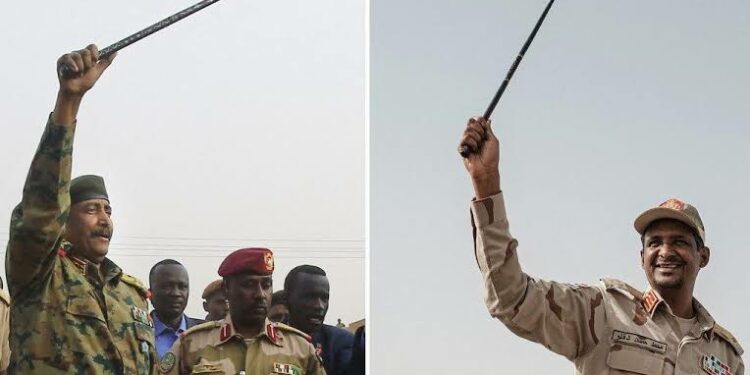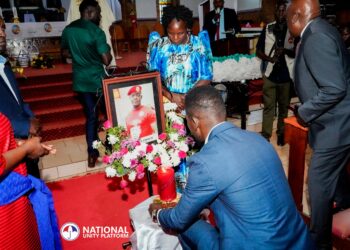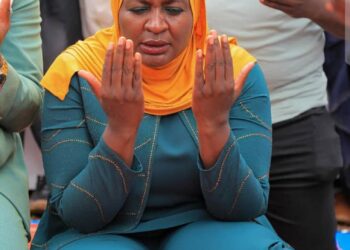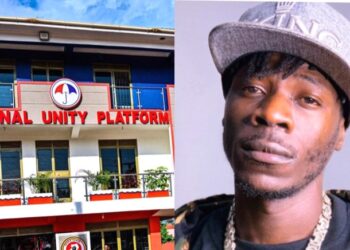Sudan’s Transitional Sovereignty Council leader, Abdel Fattah al-Burhan, and his adversary Mohamed Hamdan Dagalo’s highly anticipated meeting in Djibouti was delayed, heightening tensions in the war-stricken nation.
Initially slated for December 28th, the face-to-face discussion aimed at steering Sudan away from the ravages of conflict and towards peace, encountered a last-minute hurdle.
Dagalo, currently touring Ethiopia after his trip to Uganda, signaled his unavailability, stalling the pivotal talks mediated by the Intergovernmental Authority on Development (IGAD).
Djibouti, chair of IGAD swiftly responded, citing technical reasons for the postponement and revealing plans to reschedule the critical meeting for January 3rd.
This delay, however, elicited blame from Burhan, who held Dagalo’s forces, the Rapid Support Forces (RSF), accountable for impeding progress towards peace.
In an unprecedented move, Sudan’s Ministry of Foreign Affairs openly called out the RSF for obstructing the path to reconciliation, lamenting the lack of responsiveness from the paramilitary group, previously referred to as a criminal rebel faction.
But despite this setback, IGAD remains committed to facilitating a dialogue between the Sudanese leaders.
The failed meeting underscores international pressure, particularly from the United States and African Union, urging both chiefs to seek a ceasefire and engage in substantive negotiations to halt the ongoing conflict.
Dagalo’s visit to Uganda, marred by travel restrictions due to sanctions on his rebel group, saw discussions with President Yoweri Museveni. He highlighted the Sudanese plight, attributing the war’s outbreak to remnants and external support hindering peace efforts.
“I gave President Museveni a detailed explanation about the reasons for the outbreak of the war, which was ignited by the remnants with the help of their leaders in the armed forces and the parties that obstruct the solution and support the continuation of the war,” Dagalo wrote on X, previously known as Twitter.
On his part, President Museveni pledged unwavering support, vowing to utilize his influence and connections to aid Sudan in overcoming this tumultuous phase in its history.
However, Sudan Armed Forces’ accusations of Uganda facilitating arms deliveries to Sudan via Chad have previously strained relations between the nations.
The RSF, amidst international calls for peace and humanitarian access, faced backlash for escalating violence in al-Jezira state and Wad Madani, Sudanese second largest city, leading to a surge of 300,000 internally displaced individuals, further exacerbating the humanitarian crisis.
The urgency for a ceasefire intensifies as the conflict, ignited by disagreements over the integration of RSF into the military, jeopardizes Sudan’s fragile transition supported by the international community.
The delayed meeting underscores the critical juncture Sudan finds itself in, as efforts to stabilize the nation hang in the balance amid heightened tensions and humanitarian crises.
Do you have a story in your community or an opinion to share with us: Email us at editorial@watchdoguganda.com













